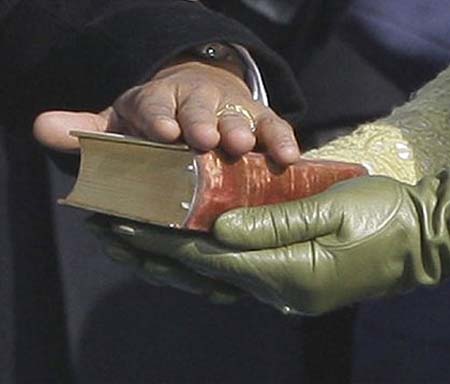Should We Question a Presidential Candidate’s Religious Beliefs?
A version of this blog post appeared on Redstate on December 1, 2007.
Those running for president are asking us them to trust them with the launch codes to the world’s most powerful and largest stockpile of nuclear weapons. Surely, then, it’s perfectly appropriate to question their judgment.
The most controversial of these judgments concerns—ironically—the candidates’ most cherished beliefs, which is to say their religious convictions.
Let’s get the caveats out of the way: The candidates are running to be our president, not our priest, so whether they say grace or how often they attend church is inconsequential.
Yet since each one has professed to be a person of deeply felt faith, they have all thereby invited us to probe what that means.
Not because, as Christopher Hitchens would have it, religion is evil—from far it—but because anything—be it religion, a book or even a wife—which a candidates claims significantly informs his thinking, warrants scrutiny.
Addendum (12/7/2007): John Dickerson points out another paradox:
[Mitt Romney] claim[s] that for voters to ask questions about his faith runs afoul of the founders’ prohibition against religious tests for office. But the legal prohibition refers to government barring people from becoming a candidate or holding office. It does not bar voters from considering religion as they make their choices.
Also, the WSJ observes that evangelical bigotry toward Mormons is grossly misplaced:
Mormons seem the very embodiment of “family values,” and you couldn’t invent a religious culture that lived more consistently with Biblical messages. Broadly speaking, most Mormons have, and come from, big families; they’re regular churchgoers and give to charity; they don’t drink, smoke, gamble or engage in premarital sex. On the scale of American problems, the Mormons don’t even register.

 Comments
Comments